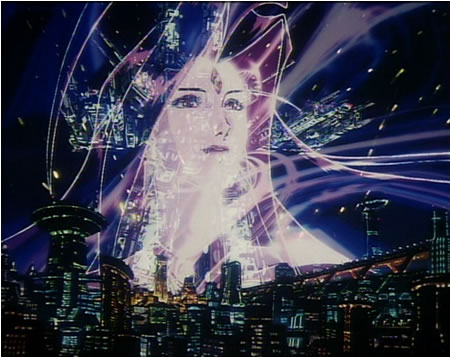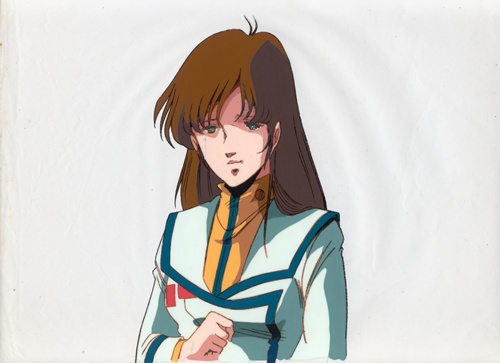Set eighty years after Space War I, Macross II has a separate continuity to the franchise, being conceived as a sequel to Macross Do You Remember Love?
In my mind, the element that elevates this OVA from merely 'okay' to 'underrated' is its protagonist Ishtar. She is a well conceived and well-written character with a clear and compelling narrative arc. In fact, her story is the strongest element of Macross II.
The Macross conceit of a pop star's voice affecting an alien army is subverted with the introduction of the Marduk who apparently figured out the whole 'Minmei' effect as well. It's actually quite fascinating to imagine the story of SDFMacross playing out differently on another world, several different species dealing with the Zentraedi each in their own way. Rather than integrate them, these guys have enslaved a Zentraedi army of their own using young women of their number to sing haunting refrains to hypnotize them. Ishtar is one of these women.
The character design is suitably otherworldly when she is introduced to us a one of the Marduk. Her look becomes more girl-next-door yet still recognizable as opportunistic journalist Hibiki shows her around Earth. Unlike more iconic Macross characters like Max or Mirya, her hair and eye colours are more pastel shades, giving her a generally soft, ethereal appearance.
Especially welcome is her reaction to the resolution of Macross II's love triangle. Hibiki chooses to rekindle things with his ex-lover, Sylvie, at the end of the series. While she's clearly disappointed, Ishtar takes it like a champ. She allows herself to feel like shit about being rejected while appreciating Hibiki's friendship and setting off to reform her entire society.
She's already off to a good start. It is she who turns the tide in the war between Earth and the Marduk. Even more than Misa Hayase, Ishtar is the protagonist of her show. However, while Misa had other strong characters to share the limelight with, Ishtar doesn't. She stands out amongst characters that could have been better than they were. Frankly that might be a fair assessment of Macross II generally: great protagonist, interesting ideas and lots of potential.





